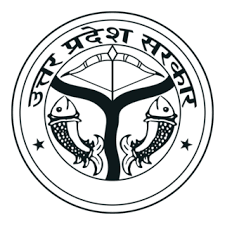What is Mediation
Mediation is a structured and informal process, in which a neutral third person facilities the disputants in arriving at a mutually acceptable settlement. To assist the parties, the Mediator uses specialized negotiation and communication techniques to arrive the dispute resolution. Parties control the outcome of the dispute which is the form of an agreement/ settlement. The mediator controls the process through which parties arrive at their settlement. The entire process is confidential.
This Authority has implemented the process of mediation at district and high court level. The Mediation Centers at district level are well equipped with necessary infrastructure including separate cubicles for maintaining secrecy of the mediation process. The Mediation Centers at High Court level are well equipped with all necessary infrastructures along with the Crèche Facility for the children of mediating parties in family court matters.
In State of Uttar Pradesh, large number of cases are referred for mediation from Family Courts. The Family Court Counselors put efforts for amicable settlement for the matrimonial disputes by counseling of the parties. The mediation at district level it is carried out by MCPC trained Judge Mediators and Advocate Mediators, whereas at High Court level it is carried out by MCPC trained Advocate Mediators. this authority is also carrying out the process of mediation at pre-litigation stage pertaining to matrimonial disputes.
Benefits and Advantages of Mediation
- The parties have CONTROL over the mediation in terms of 1) its scope (i.e., the terms of reference or issues can be limited or expanded during the course of the proceedings) and 2) its outcome (i.e., the right to decide whether to settle or not and the terms of settlement.)
- Mediation is PARTICIPATIVE. Parties get an opportunity to present their case in their own words and to directly participate in the negotiation.
- The process is VOLUNTARY and any party can opt out of it at any stage if he feels that it is not helping him. The self-determining nature of mediation ensures compliance with the settlement reached.
- The procedure is SPEEDY, EFFICIENT and ECONOMICAL.
- The procedure is SIMPLE and FLEXIBLE. It can be modified to suit the demands of each Flexible scheduling allows parties to carry on with their day-to-day activities.
- The process is conducted in an INFORMAL, CORDIAL and CONDUCIVE environment.
- Mediation is a FAIR PROCESS. The mediator is impartial, neutral and independent. The mediator ensures that pre-existing unequal relationships, if any, between the parties, do not affect the negotiation.
- The process is CONFIDENTIAL.
- The process facilitates better and effective COMMUNICATION between the parties which is crucial for a creative and meaningful negotiation.
- Mediation helps to maintain/ improve/ restore relationships between the parties.
- Mediation always takes into account the LONG TERM AND UNDERLYING INTERESTS OF THE PARTIES at each stage of the dispute resolution process – in examining alternatives, in generating and evaluating options and finally, in settling the dispute with focus on the present and the future and not on the past. This provides an opportunity to the parties to comprehensively resolve all their differences.
- In mediation the focus is on resolving the dispute in a MUTUALLY BENEFICIAL.
- A mediation settlement often leads to the SETTLING OF RELATED/ CONNECTED CASES between the parties.
- Mediation allows CREATIVITY in dispute resolution. Parties can accept creative and nonconventional remedies which satisfy their underlying and long term interests, even ignoring their legal entitlements or liabilities.
- When the parties themselves sign the terms of settlement, satisfying their underlying needs and interests, there will be compliance.
- Mediation PROMOTES FINALITY. The disputes are put to rest fully and finally, as there is no scope for any appeal or revision and further litigation.
- REFUND OF COURT FEES is permitted as per rules in the case of settlement in court referred mediation.


